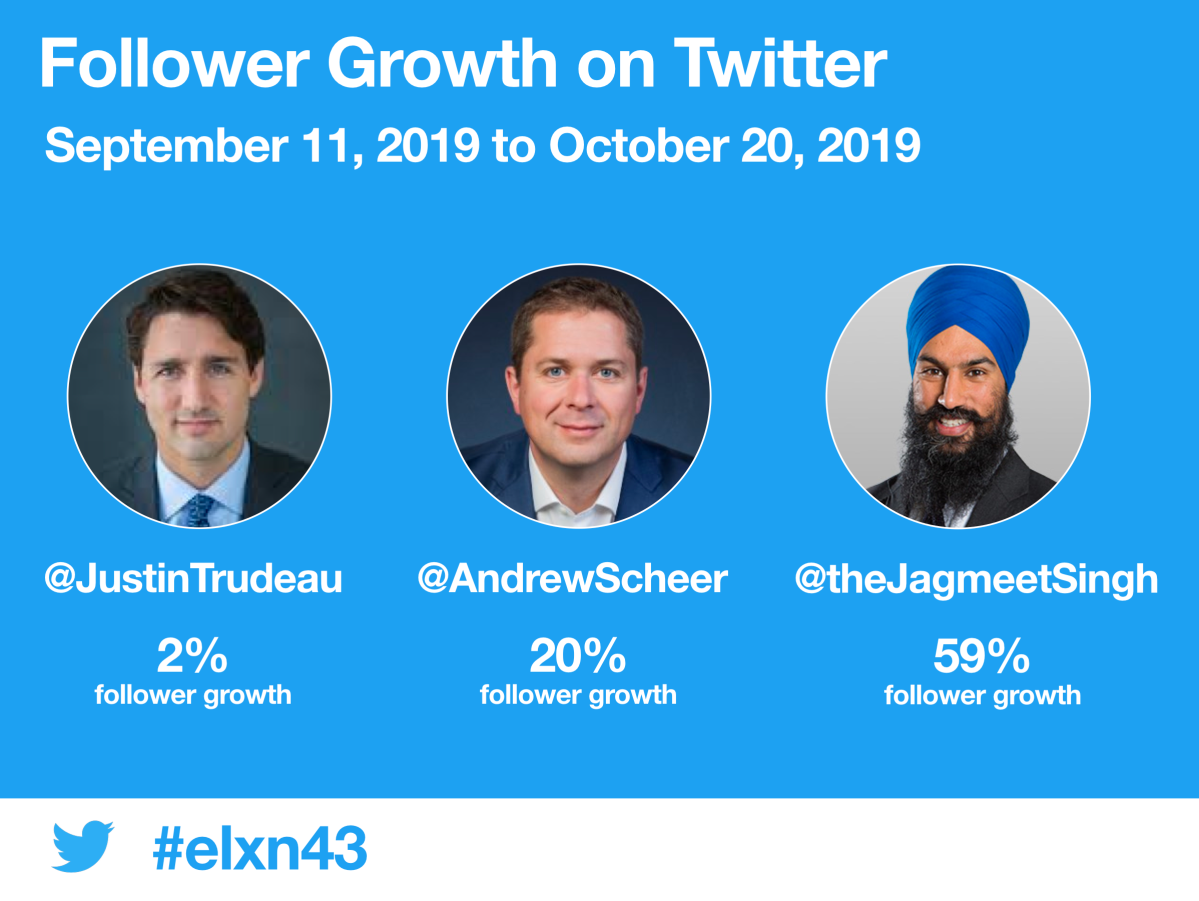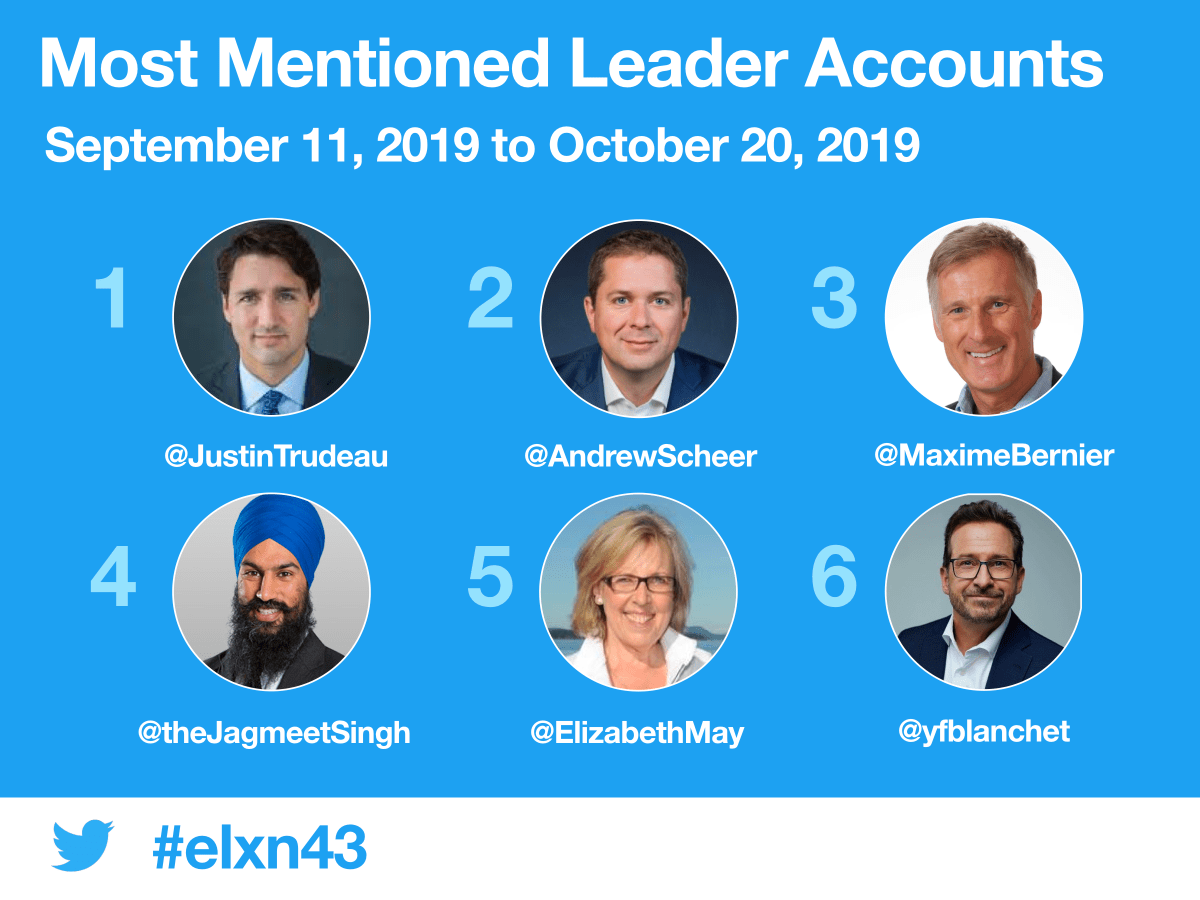Social media is playing a bigger role in the election campaign than ever before and that has forced Canadian federal party leaders to change the way they interact with voters.


Experts are finding what used to be a conversation over coffee or at the water cooler is now happening online.
“It’s more instantaneous. Far more people have smartphones so the apps are loaded right on their phones and that’s what has increased the number of users of social media over the past four years,” said Peter Ryan, a Mount Royal University communications professor.
Ryan said that it’s important for leaders to keep up with the rapidly changing landscape of social media.
“It has become a technological warfare type of mentality. If the other party is better on that channel, they can get access to more voters,” he said.

Get daily National news
Since the writ dropped on Sept. 11, Jagmeet Singh has seen his Twitter following grow by 59 per cent, and on Oct. 5, he eclipsed Andrew Scheer in terms of Twitter followers.
As for Twitter account mentions — good and bad — Justin Trudeau greatly surpasses all other federal leaders.
Trudeau has been mentioned 60 per cent more than Andrew Scheer, who is the second most mentioned leader.
“It seems like it’s playing more and more of a role in the election campaign,” said Darrell Bricker, the CEO of Ipsos Public Affairs, a polling, research, marketing, and analysis company.
“The assumption is that it’s really targeted for younger voters, but the truth is, most of the growth we’ve seen more recently in social media platforms and usages tend to be among older voters.”
Albertans have been very active on Twitter during the election campaign, with Ontario being the only other province with more election tweets.
When you break that down per city, Edmonton and Calgary are in the Top 5 nationally.
Here are the cities that tweeted the most about the federal election:
- Toronto
- Vancouver
- Ottawa
- Calgary
- Edmonton
Beyond Facebook, Twitter and Instagram, some parties have joined other social media platforms like Weibo, Snapchat, Flikr and TikTok.

Online platforms were the new way of campaigning in this federal election and will likely play an even bigger role in future elections, but experts believe people will continue to tune into traditional forms of media to form their opinions on the candidates.




Comments